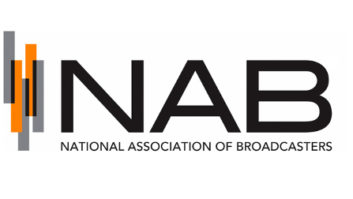Text has been updated to clarify that the pending deadline is for reply comments; the initial comment window ended earlier.
We told you earlier about a petition for rulemaking from the National Association of Broadcasters that asks the FCC to give translator licensees more flexibility in order to resolve interference complaints. Comments have been coming in and the deadline for reply comments is next Wednesday.
The NAB asked the commission to consider policy changes now meant to “facilitate the efficient disposition of interference complaints against translators.” As most RW readers know, the number of FM translators has been expanding quickly in the United States. In fact, the NAB’s request comes just as the FCC is preparing for another FM translator filing window; licensees with Class C and D AM stations will be allowed to apply for new FM translators to rebroadcast their signals beginning in late July, as we’ve reported.
Interference issues have taken an increasingly high profile along with that growth. The NAB petition, filed in April, acknowledges that translators are an increasingly important part of radio broadcasters’ service but agrees that growth in the number of translators has increased the risk of translators causing interference to full-power radio stations. As a secondary service, a translator licensee must resolve interference caused to any full-power radio stations.
The association proposed amending Section 74.1233 of the rules to allow translators to move anywhere on the FM dial to resolve interference while treating it a minor change. “This additional flexibility will enable more translator licensees to efficiently cure interference by simply changing channels,” the NAB wrote in its executive summary.
Filed comments so far are mostly favorable.
Alpha Media, Beasley Media Group and iHeartMedia filed a joint statement supporting the NAB’s petition.
“NAB’s proposal for the improvement of the process of handling interference caused by FM translators presents a consensus position respectful of competing spectrum uses by a wide range of broadcasters, including those, such as the commenters here, who serve the public via both primary full service radio stations and secondary-service FM translators,” they wrote.
“One of NAB’s common sense proposals is for a revision of Section 74.1233 of the commission’s rules defining minor modifications to FM translators. At present, the commission restricts a minor channel change for an FM translator to a first, second or third adjacent, or IF, channel. In lieu of this limitation, the NAB proposes that an FM translator may resolve interference to other signals by moving anywhere on the FM dial as a minor change. As noted in the NAB petition, this proposed rule change would be a logical extension of the current commission policy which allows a waiver of the minor modification channel restriction for FM translators displaced by interference from new or modified full service FM operations,” the three broadcast groups wrote in their comments.
Windy City Broadcasting LLC, licensee of FM translator station K244EX in Las Vegas, Nev., supported the proposal: “Making available a wide range of technical solutions for resolution of interference complaints for translator stations during the application process or when the translator station is broadcasting will serve the public by ensuring that more translator stations remain on the air … technical solutions will conserve the resources of the commission and the public,” Windy City wrote.
Others filers in support of the NAB petition include Hubbard Radio, the National Translator Association and Power Radio Inc.
Pueblo Broadcasting Group, which owns Class C1 KIQN(FM) in Colorado City, Colo., agrees with the overall sentiment expressed in the NAB petition, but disagrees with some of the specific rules and policy changes suggested, according to comments filed by the broadcaster.
“Although a few of these proposals may appear to be benign or innocuous, they will have the practical effect of making it even more difficult and time-consuming for full-powered primary stations to expeditiously address interference caused by new translators. The existing translator remediation scheme is dysfunctional because social engineering has been allowed to replace RF engineering,” it wrote.
“The concept of ‘bona fide listeners’ is being misused and misapplied. Translator operators use any alleged connection, however remote or contrived, in an attempt to discredit legitimate complaints from further consideration. This manipulation facilitates a situation where translator operators are allowed to delay, stall, and stonewall for excessive periods of time, with the translator making money during the delay and the full-powered station getting the short end of the stick. The translator operator has no incentive to work towards a resolution. The result is a stalemate where nothing gets resolved,” the group told the FCC.
Pueblo Broadcasting Group said it has been a “front-line participant” in a protracted three-year battle to remove first-adjacent translator interference caused by K276FL, according to its comments.
Reply comments to RM-11787 can be submitted until Wednesday, June 14. Previously filed public comments can be viewed here.
The commission continues to direct a lot of its attention to FM translators. In May it accepted comments on a Petition for Rulemaking from Aztec Capital Partners Inc., seeking a “rebalancing of the equities in the FM translator rules” so that radio service provided by fill-in translators is not “forestalled or removed by distant radio stations far outside” a local radio market (RM-11786).
The FCC also recently gave some 2,000 or so AM stations that rebroadcast on FM translators more flexibility in locating their FM signals.











